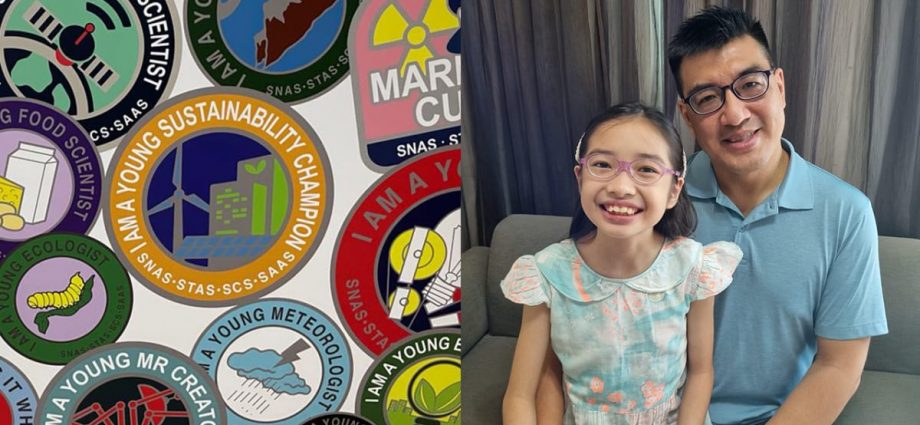
USING KIDS TO INFLUENCE ADULTS
More than 1 million badges have been awarded since the Young Scientist Badge scheme began 41 years ago. But as the field of science evolved, so did the scheme.
For instance, the Young Sustainability Champion badge was introduced in 2020, and became the first badge to allow secondary school students to sign up under a “senior” category.
In 2022, two badges – the Marie Curie and the Margaret Fountaine badges – were launched under a new category called the multidisciplinary badges. This year, the Young Digital Fabricator badge was added.
Some tasks for other badges have also been updated, such as no longer requiring the child to visit the now-demolished National Library building at Stamford Road.
But the essence of the Young Scientist Badge scheme still stands. It illustrates the “power of going through a child”, said Science Centre’s chief executive Lim Tit Meng.
This can be particularly helpful in the area of sustainability, noted Associate Professor Lim, highlighting a documentary he watched in which a grandmother expressed frustration at having to reduce waste. Her granddaughter then reminded her that her inaction would affect the younger generation’s future.
“Sometimes, children are the best educators to transform parents. Sometimes, young kids will just blatantly say ‘Eh, daddy, mummy, why are you so wasteful? You’re not green,’” he explained.
“I think parents will listen to them more, especially when a child says, ‘It’s my future.’”
Assoc Prof Lim added that the Young Sustainability Champion badge, in empowering the young, also encourages them to “own their situations”.
“Because they’re young, they have to get their parents involved. And indirectly and directly, they get their parents to think about what can we do, what can we learn about sustainability, what (role) can we play as an individual or as a family?” he said.

